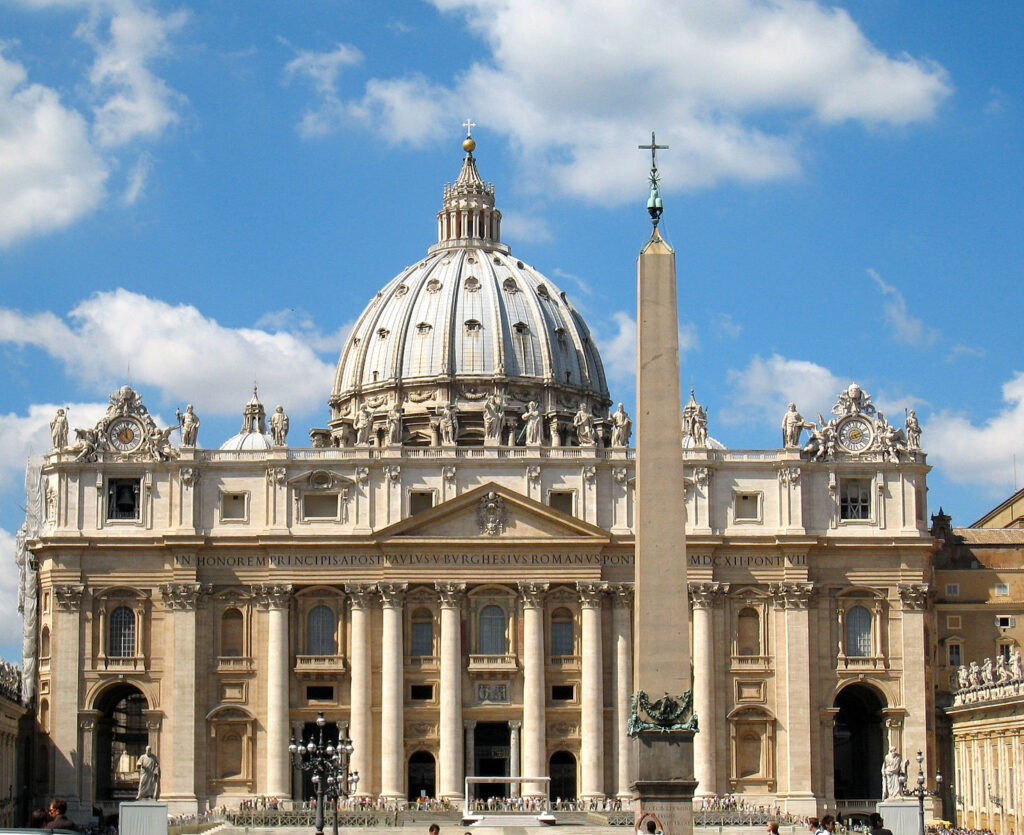And now, “political love.”
In the Roman Catholic Church, a papal encyclical is a pastoral letter issued by the Holy Father to offer teaching on a significant issue or issues. Earlier this month, Pope Francis issued Fratelli Tutti, in part addressing the relationship between charity, justice, politics, and love—about some of which we recently have quoted previous encyclical passages. Below, in that context, we place Fratelli Tutti’s passages regarding what it labels “political love.”
***
[T]he law of charity, “which is the bond of perfection,” must always take a leading role. How completely deceived, therefore, are those rash reformers who concern themselves with the enforcement of justice alone—and this, commutative justice—and in their pride reject the assistance of charity! Admittedly, no vicarious charity can substitute for justice which is due as an obligation and is wrongfully denied.
— Pope Pius XI, Quadragesimo Anno (“After Forty Years”), 1931, No. 137
Since the nineteenth century, an objection has been raised to the Church’s charitable activity, subsequently developed with particular insistence by Marxism: the poor, it is claimed, do not need charity but justice. Works of charity—almsgiving—are in effect a way for the rich to shirk their obligation to work for justice and a means of soothing their consciences, while preserving their own status and robbing the poor of their rights. Instead of contributing through individual works of charity to maintaining the status quo, we need to build a just social order in which all receive their share of the world’s goods and no longer have to depend on charity. There is admittedly some truth to this argument, but also much that is mistaken. It is true that the pursuit of justice must be a fundamental norm of the State and that the aim of a just social order is to guarantee to each person, according to the principle of subsidiarity, his share of the community’s goods. …
…
Love—caritas—will always prove necessary, even in the most just society. There is no ordering of the State so just that it can eliminate the need for a service of love. Whoever wants to eliminate love is preparing to eliminate man as such.
— Pope Benedict XVI, Deus Caritas Est (“God is Love”), 2005, Nos. 26-28
Political love
Recognizing that all people are our brothers and sisters, and seeking forms of social friendship that include everyone, is not merely utopian. It demands a decisive commitment to devising effective means to this end. Any effort along these lines becomes a noble exercise of charity. For whereas individuals can help others in need, when they join together in initiating social processes of fraternity and justice for all, they enter the “field of charity at its most vast, namely political charity”. This entails working for a social and political order whose soul is social charity. Once more, I appeal for a renewed appreciation of politics as “a lofty vocation and one of the highest forms of charity, inasmuch as it seeks the common good”.
Every commitment inspired by the Church’s social doctrine is “derived from charity, which according to the teaching of Jesus is the synthesis of the entire Law (cf. Mt 22:36-40)”. This means acknowledging that “love, overflowing with small gestures of mutual care, is also civic and political, and it makes itself felt in every action that seeks to build a better world”. For this reason, charity finds expression not only in close and intimate relationships but also in “macro-relationships: social, economic and political”.
… [T]here are attempts nowadays to reduce persons to isolated individuals easily manipulated by powers pursuing spurious interests. Good politics will seek ways of building communities at every level of social life, in order to recalibrate and reorient globalization and thus avoid its disruptive effects.
…
THE EXERCISE OF POLITICAL LOVE
There is a kind of love that is “elicited”: its acts proceed directly from the virtue of charity and are directed to individuals and peoples. There is also a “commanded” love, expressed in those acts of charity that spur people to create more sound institutions, more just regulations, more supportive structures. It follows that “it is an equally indispensable act of love to strive to organize and structure society so that one’s neighbour will not find himself in poverty”. It is an act of charity to assist someone suffering, but it is also an act of charity, even if we do not know that person, to work to change the social conditions that caused his or her suffering. If someone helps an elderly person cross a river, that is a fine act of charity. The politician, on the other hand, builds a bridge, and that too is an act of charity. While one person can help another by providing something to eat, the politician creates a job for that other person, and thus practices a lofty form of charity that ennobles his or her political activity.
— Pope Francis, Fratelli Tutti (“Brothers All”), October 2020, Nos. 180-82, 186
(All footnotes omitted; all emphases supplied.)




